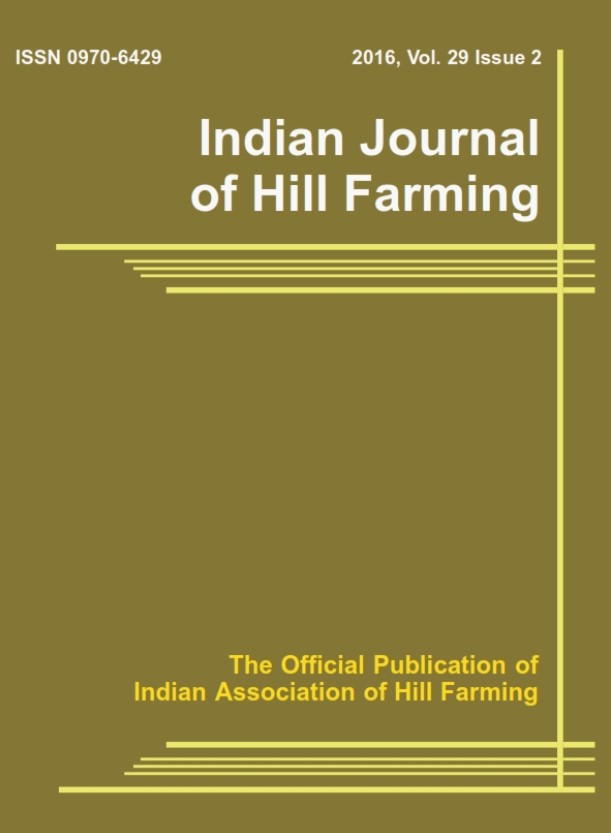Knowledge Level of Ginger Growers on Improved Cultivation Practices of Ginger (Zingiber Officinale L.) in Tuensang District, Nagaland
Keywords:
Indigenous, knowledge, ginger, recommended, practicesAbstract
The present study was conducted in Tuensang district of Nagaland, situated in the eastern most part of Nagaland, India. Tuensang district has been endowed with fertile soil and favourable climatic conditions for ginger cultivation and most of the farmers are cultivating ginger on a large scale, thus, this study was conducted with an objective to examine the knowledge level of improved cultivation practices of Ginger by ginger growers. The study was carried out in four villages under one RD block with a sample size of 120 ginger growers as respondents. Ex-Post Facto research design was adopted for this study. Based on recommended practices of cultivation, it was concluded that majority of the respondents knowledge level was medium. Almost all (95-98%) of the respondents had knowledge on propagation; harvesting and post-harvest management. Half of the respondents had knowledge on improved varieties; physiological disorders; intercultural operations; disease and pest management. It was found that less than half of the respondents had knowledge on land preparation; climate and soil requirement while, knowledge on spacing, planting time, water requirement and manure were negligible. However, it was inferred that the local practices of planting time, spacing and manuring with wood ash as followed by the respondents were found to be more effective in their local situation, therefore, the indigenous knowledge may be documented and promoted wherever applicable.




